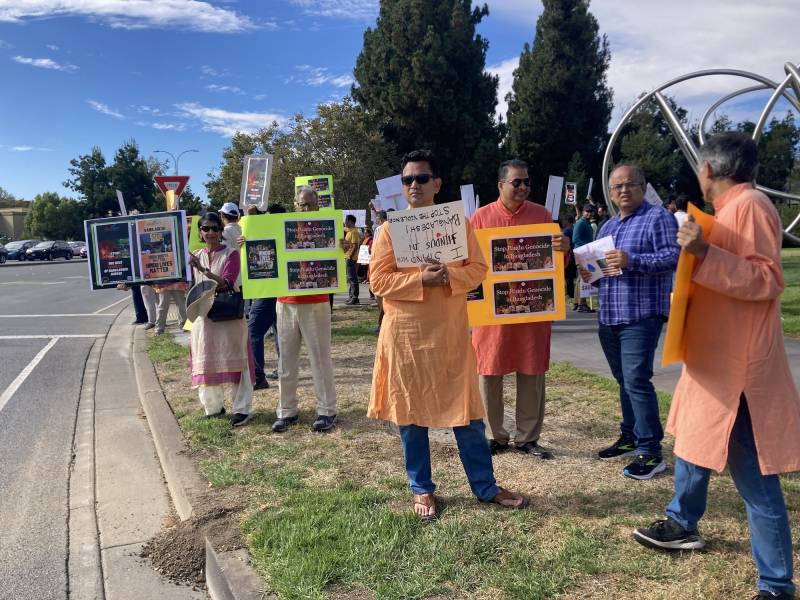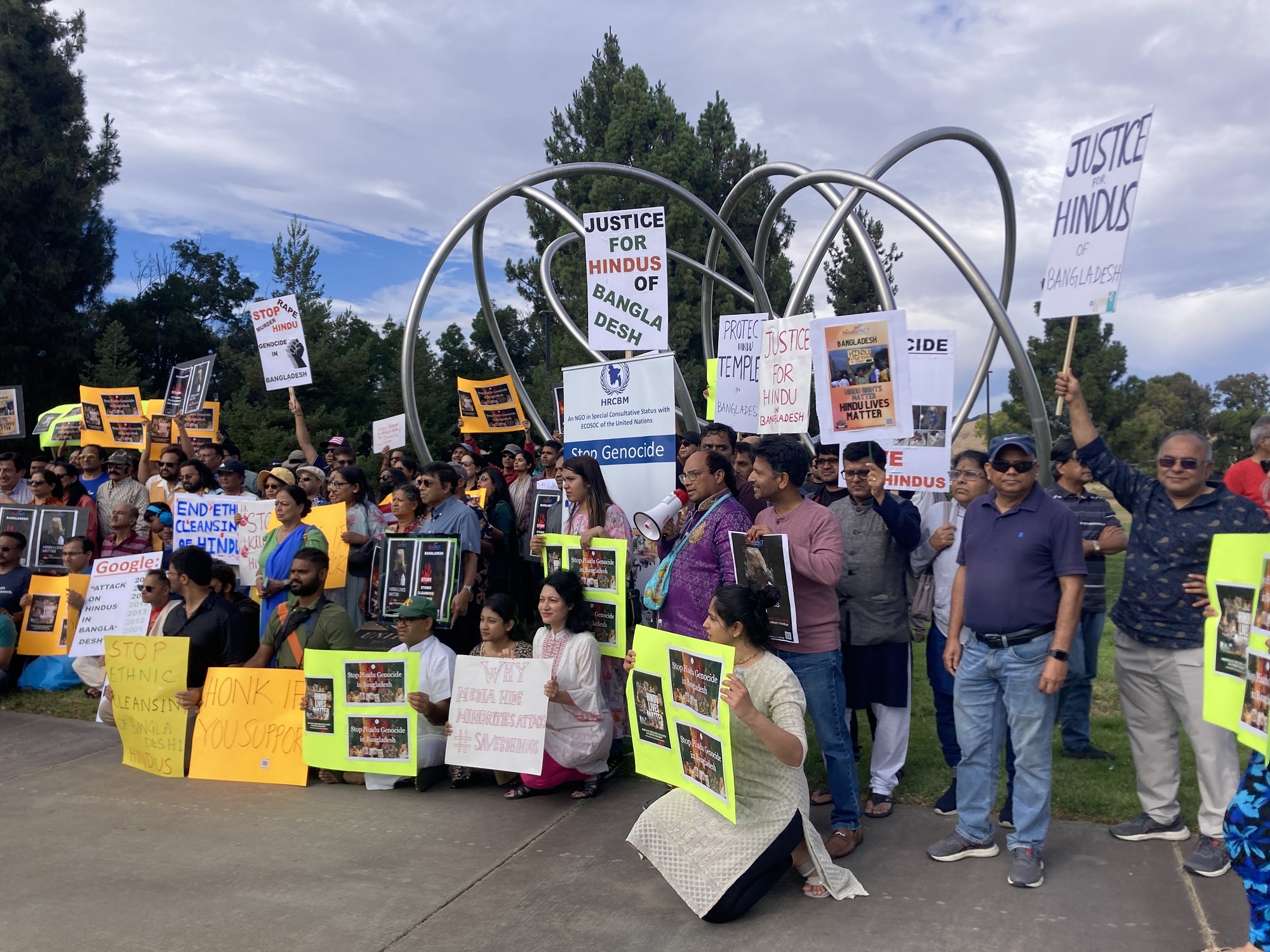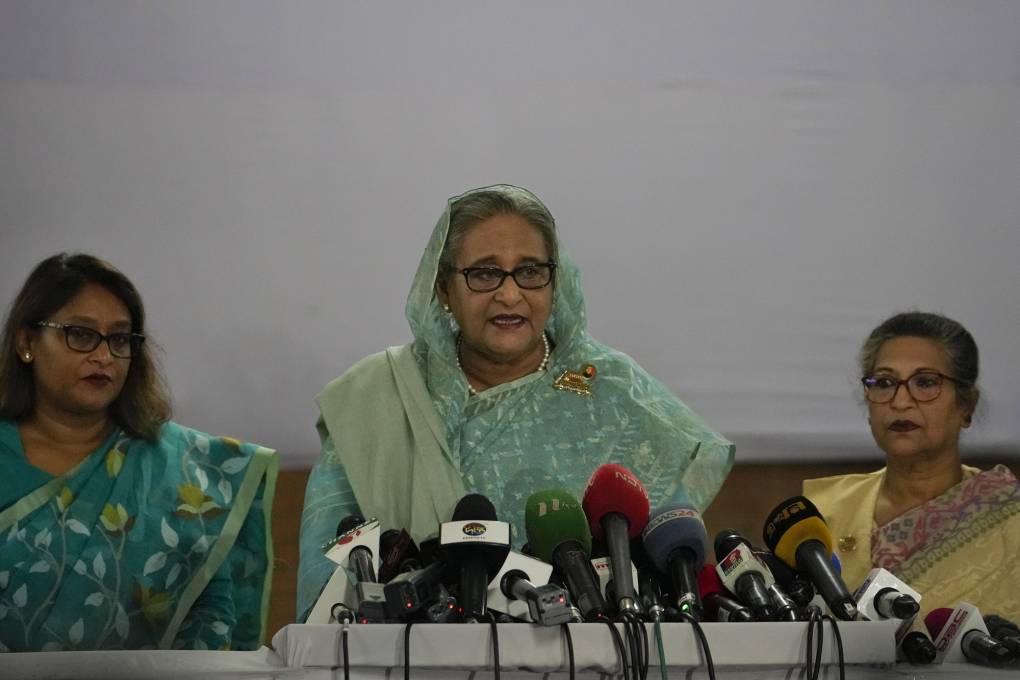Kalyan Sikder arrived early in his red kurta and sunglasses with a sign that read “Stand united against all Hindu tortures” on one side and “Stop ethnic cleansing of Bangladeshi Hindus” on the other.
Sikder was one of roughly 100 people who rallied Sunday evening in Fremont to bring attention to violence against Hindus in Bangladesh after the country’s prime minister fled in the wake of mass protests and a police crackdown that left hundreds dead.
Sikder, an electrical engineer in Milpitas who was born and raised in Bangladesh, said his uncle “was brutally tortured, physically assaulted, and our extended family members’ houses were vandalized.” He shared a photo from WhatsApp of a man with two bruised welts on his arm and back, saying his uncle “was beaten with big bamboo sticks.”
“Hindus are not able to sleep at night,” Sikder said, explaining that some of his relatives and other Hindus where his family is from are creating small groups to defend themselves because they say the police are not taking action. “Everybody is fearful.”


